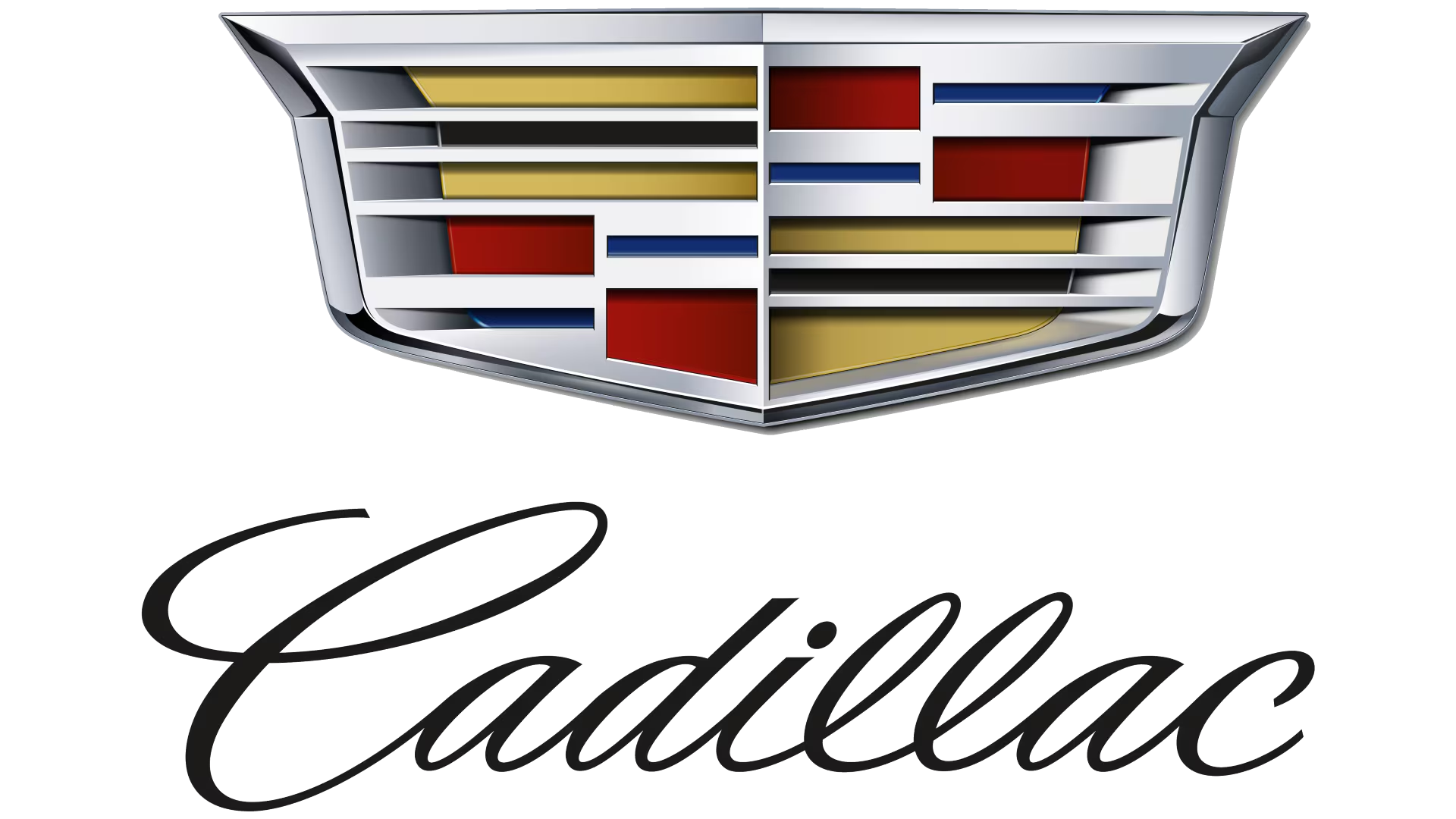Electric Vehicles at Gurley Leep
As the next generation of vehicles are being produced, we are proud to be at the forefront of creating a more sustainable auto industry. We are already taking steps to prepare our dealerships with vehicle charging ports and service bays to work on EVs. Take a step forward with us today by looking at an EV for your new vehicle purchase.
She’s Electric – Evie, Evie, Evie
The future of vehicles in Michiana is electric. Evie is here at Gurley Leep to introduce you to electric vehicles and what they can offer.
Moving Forward
Why Transition to EVs?
Electric vehicles (EVs) are vehicles that run on batteries or fuel cells rather than internal combustion engine vehicles which relied on liquid fuel. Even though EVs have been around for over 100 years, gasoline or diesel-powered vehicles have been what the vast majority of people have driven since the invention of the automobile. In recent years, battery technology has advanced enough to make EVs a suitable solution for the masses. The cost of producing batteries has come down and at the same time the batteries have gotten much stronger. Another big reason for the switch is environmental concerns, as EVs produce zero emissions and are now more energy efficient than traditional vehicles. For these reasons, most vehicle manufacturers have made the decision to phase out the internal combustion engine from their model line-ups.
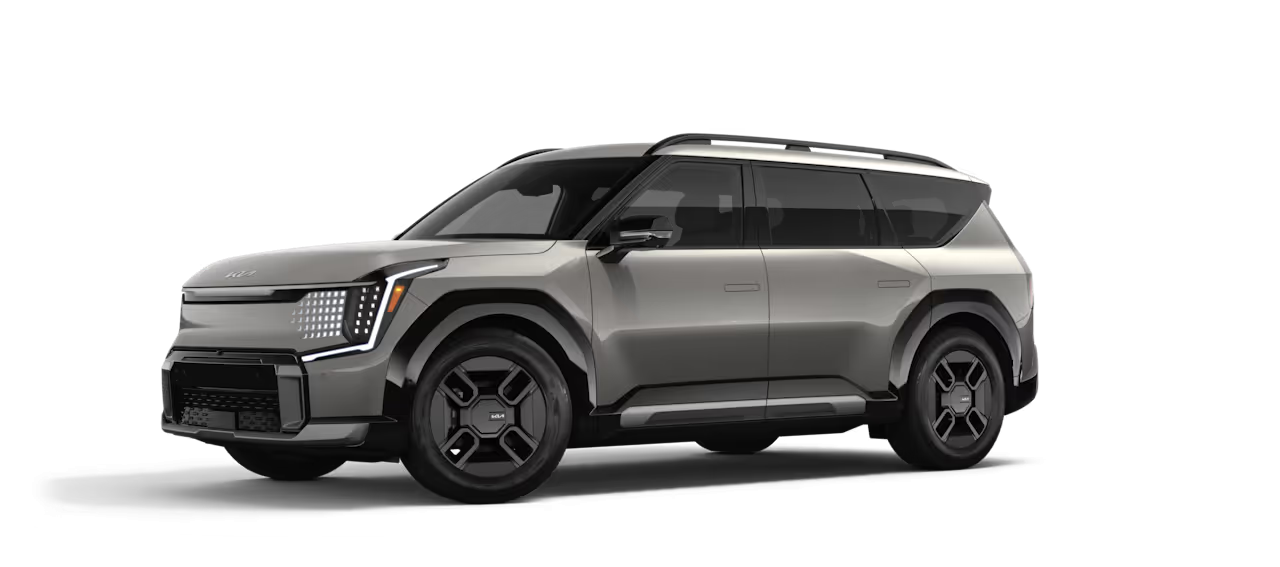
Benefits of Electric Vehicles
There are so many reasons to drive an electrified vehicle. These are just a few that can directly benefit you.

Fun to Drive
Instant torque and impressive acceleration bring fun and excitement to driving electric vehicles.

Fill Up Less, Save More
Reduce or eliminate your reliance on gas and save money at the pump.

Incentives and Tax Credits
Potential benefits include lower electricity rates, a tax credit of up to $7,500 and more.

Low Emissions
A new electrified vehicle can help you feel good about your carbon foot print by reducing or eliminating your driving emissions.

There's One for Everyone
Whether you're commuting to work or heading out on a longer journey, there's an option that fits your lifestyle.

High-Voltage Battery Limited Warranty
Many manufacturers are offering high-voltage battery warranty coverage.
Learn the differences between fully electric vehicles and hybrid vehicles.
| Electric Vehicles (EVs) | Hybrid Vehicles (HEVs) | Plug-In Hybrid Vehicles (PHEVs) | |
|---|---|---|---|
| Energy Source | Runs on electricity drawn from a high-voltage battery | Runs on gas and electricity | Runs on electricity first, then automatically switches to gas when needed |
| Recharging & Refueling | Plug in using at-home charging options or at charging stations | Refuel at traditional gas stations, no charging needed | Refuel at gas stations, plugging in daily is recommended to maximize electric usage |
| Regenerative Braking | Almost all electric vehicles have regenerative braking | Some hybrids offer regenerative braking | Most plug-in hybrids offer regenerative braking |
| Advantages | No dependency on gas and zero vehicle emissions | Impressive MPG ratings, save time & money by refueling less often | Uses fully-electric for shorter trips and switches to gas when needed |
| First Oil Change & Inspection | Included at no charge! | Included at no charge! | N/A |
 |
Electric Vehicle Charging
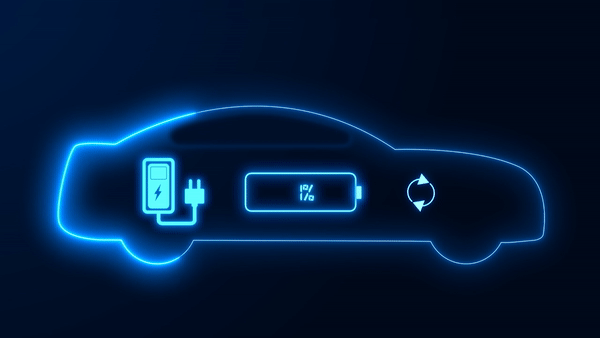
One of the benefits of driving an EV means no longer having to fill up at the pump. EVs have the convenience of plugging your car in overnight at home and recharging the battery for the next day. EV charging stations have been popping up in recent years so you can recharge your vehicle on longer journeys. There are three major types of electric vehicle chargers:
Level 1 AC Chargers
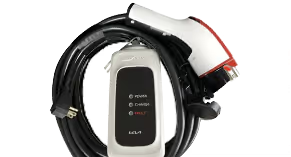
Outlet:
120-volt standard outlet.
Need electrician to install? No.
Charge speed:
5-6 mile range/hour.
Ideal use:
Overnight charging
Benefits:
Requires no installation and can go anywhere
Where are they used?
Since you can plug it into any outlet, these charges are typically in homes
Level 2 AC Chargers
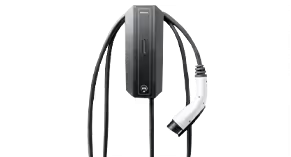
Outlet:
240-volt, the same as used for some major appliances.
Need electrician to install? Yes.
Charge speed:
25-60 mile range/hour.
Ideal use:
Quick charging for more frequent charging needs.
Benefits:
Faster Charging.
Where are they used?
Can be installed at home but will typically find at dealerships and public locations such as malls
Level 3 DC Chargers
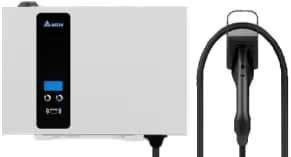
Outlet:
480-volt, uses DC instead of AC power
Need electrician to install? N/A, cannot be installed in homes.
Charge speed:
75-200 mile range/hour.
Ideal use:
Used on long trips.
Benefits:
Can charge back to 80% in as little as 30 min.
Where are they used?
Due to the type of power required, these charges are only found at dedicated charging stations
Save now and down the road.
EV buyers may be eligible for a range of federal tax credits, state incentives, and other long-term benefits.1
